Background
Steven Parish was born on November 29, 1953 in Lacrosse, Washington, United States. He is the son of Lyle D. Parish, a farmer and factory worker, and Alice Parish, a nurse.

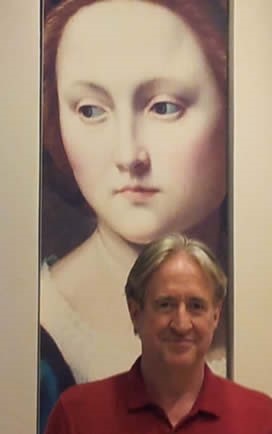



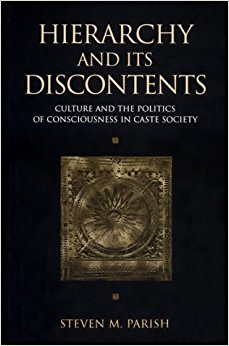
(The caste system fascinates Western scholars because it f...)
The caste system fascinates Western scholars because it forms the basis for South Asian society—but how does it affect its participants?
http://www.amazon.com/gp/product/0812215516/?tag=2022091-20
1996
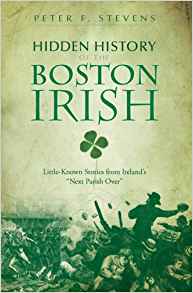
(When it comes to Irish America, certain names spring to m...)
When it comes to Irish America, certain names spring to mind―Kennedy, O’Neill, and Curley testify to the proverbial “footsteps of the Gael” in Boston. However, few people know of Sister Mary Anthony O’Connell, whose medical prowess carried her from the convent to the Civil War battlefields, earning her the nickname “the Boston Irish Florence Nightingale,” or of Barney McGinniskin, Boston’s first Irish cop, who proudly roared at every roll call, “McGinniskin from the bogs of Ireland―present!” Along with acclaim or notoriety, many forgotten Irish Americans garnered numerous historical firsts. In Hidden History of the Boston Irish, Peter F. Stevens offers an entertaining and compelling portrait of the Irish immigrant saga and pays homage to the overlooked, yet significant, episodes of the Boston Irish experience.
http://www.amazon.com/gp/product/1596294507/?tag=2022091-20
2008
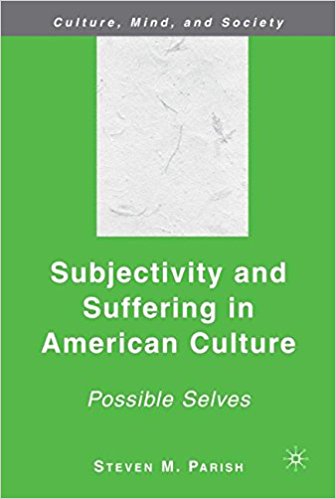
(Winner of The Boyer Prize from the Society for Psychologi...)
Winner of The Boyer Prize from the Society for Psychological Anthropology!!! This book explores the experience of suffering in order to shed light on the nature of the human self. Using an intimate life history approach, it examines ways people struggle to cope with experiences that can shatter their lives: a diagnosis of cancer, the death of a spouse, a parent’s mental illness. The volume takes readers deep into private worlds of suffering in American culture, and invites reflection on what the subjectivity of suffering tells us about being human. Addressing universal themes in a way that fully recognizes the individuality of those who experience a personal crisis, Parish shows how individuals personalize the cultural and psychological resources in which they find their possible selves. Winner of The Boyer Prize from the Society for Psychological Anthropology!!! This book explores the experience of suffering in order to shed light on the nature of the human self. Using an intimate life history approach, it examines ways people struggle to cope with experiences that can shatter their lives: a diagnosis of cancer, the death of a spouse, a parent’s mental illness. The volume takes readers deep into private worlds of suffering in American culture, and invites reflection on what the subjectivity of suffering tells us about being human. Addressing universal themes in a way that fully recognizes the individuality of those who experience a personal crisis, Parish shows how individuals personalize the cultural and psychological resources in which they find their possible selves. Winner of The Boyer Prize from the Society for Psychological Anthropology!!! This book explores the experience of suffering in order to shed light on the nature of the human self. Using an intimate life history approach, it examines ways people struggle to cope with experiences that can shatter their lives: a diagnosis of cancer, the death of a spouse, a parent’s mental illness. The volume takes readers deep into private worlds of suffering in American culture, and invites reflection on what the subjectivity of suffering tells us about being human. Addressing universal themes in a way that fully recognizes the individuality of those who experience a personal crisis, Parish shows how individuals personalize the cultural and psychological resources in which they find their possible selves.
http://www.amazon.com/gp/product/0230605389/?tag=2022091-20
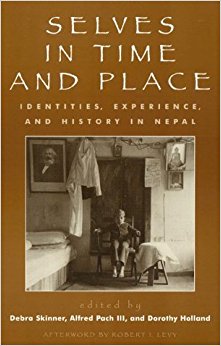
(Recently anthropology has turned to accounts of persons-i...)
Recently anthropology has turned to accounts of persons-in-history/history-in-persons, focusing on how individuals and groups as agents both fashion and are fashioned by social, political, and cultural discourses and practices. In this approach, power, agency, and history are made explicit as individuals and groups work to constitute themselves in relation to others and within and against sociopolitical and historical contexts. Contributors to this volume extend this emphasis, drawing upon their ethnographic research in Nepal to examine closely how selves, identities, and experience are produced in dialogical relationships through time in a multi-ethic nation-state and within a discourse of nationalism. The diversity of peoples, recent political transformations, and nation-building efforts make Nepal an especially rich locale to examine people's struggles to define and position themselves. But the authors move beyond geographical boundaries to more theoretical terrain to problematicize the ways in which people recreate or contest certain identities and positions. Various authors explore how people―positioned by gender, ethnicity, and locale―use cultural genres to produce aspects of identities and experiences; they examine how subjectivities, agencies and cultural worlds co-develop and are shaped through engagement with cultural forms; and they portray the appropriation of multiple voices for self and group formation. As such, this collection offers a richly textured and complex accounting of the mutual constitution of selves and society.
http://www.amazon.com/gp/product/0847685985/?tag=2022091-20
Steven Parish was born on November 29, 1953 in Lacrosse, Washington, United States. He is the son of Lyle D. Parish, a farmer and factory worker, and Alice Parish, a nurse.
Parish was educated at the University of Oregon, receiving a bachelor's degree from it in 1978. He studied also at the University of California in San Diego, he got master's degree from it in 1981, as well as philosophy's degree in 1987.
Parish worked as an assistant professor of anthropology at Boston University during five years from 1988. A year later he became an independent scholar and consultant, holding that position for 2 years. From 1996 he served as an assistant professor of anthropology at the University of California.
Professor Steve Parish is a member of the Psychological/Medical Anthropology subfield. His major interests are cultural, medical, and psychological anthropology, social theory, religion, the self and subjectivity, global health and the subjectivity of suffering, climate change and its consequences for society and human values. His research has addressed a number of topics in psychological anthropology, with a central focus on the study of self, emotion, and moral experience.
His research has used person-centered ethnography to understand the role of culture in the development of moral consciousness, to examine the experience of inequality as it shapes the formation of self and culture in caste society, and to explore the subjectivity of suffering.
He has a strong interest in the intersection of global health, climate change, and sustainability—especially in India, Nepal, and the Himalaya. This reflects interests in nature, culture, and the ethics of humanity’s relationship to the natural world and cultural diversity.
(Recently anthropology has turned to accounts of persons-i...)
(Winner of The Boyer Prize from the Society for Psychologi...)
(When it comes to Irish America, certain names spring to m...)
2008(The caste system fascinates Western scholars because it f...)
1996In the anthropology of religion and South Asian studies, Parish's scholarly interests include Hinduism, Buddhism, and the role of ritual in selfhood and social life.
Quotations:
“As a Writer and ethnographer, I explore lived cultural worlds. My first book is a study of self in culture, an exploration of a moral world and its cultural psychology. My second book is about untouchables in the caste system of Nepal and India; it attempts to bring to light their psychological struggles and the cultural politics of their consciousness."
“Trying to do a little justice to this very human process means writing against powerful intellectual currents that reduce persons to social constructions, render them flat, one-dimensional discourses, or even reduce them to empty, passive ‘sites’ for such discourse. This obscures the pain and dynamics of being human in any culture, obscures human agency and people’s efforts to make lives for themselves. As James Baldwin reminded us, evading the complexity of others diminishes us all: for the complexity of others resonates with “the disquieting complexity of ourselves.” Along with others, I have tried to write a more robust sense of the person into contemporary anthropology and social theory."
“I believe those of us who struggle to understand society, culture, and history should not ignore those who struggle to live in society and culture, who confront history with their lives. Social theorist C. Wright Mills wrote that we must locate society into the flow of history, and human lives in society. We need to ask about the experience and identity of people, to explore their quandaries and lives and selves. Such questions guide my work and writing."
“What I write is ethnography. That is, I try to describe and say something meaningful about cultural worlds and the lives of those who inhabit those worlds. In the contemporary scene, ethnography has emerged as an important and controversial genre of writing—one centrally involved in debates about society. Yet I believe it has yet to develop fully its potential for illuminating the cultural and psychological life of persons-in-society."
Parish is a member of American Anthropological Association and Society for Psychological Anthropology.
Parish married Rita Shakya in 1985.
